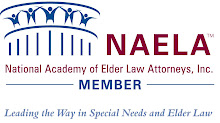Pet ownership adds a layer of complexity to the estate planning process. It is important to consider who will care for your animals if you become incapacitated or unexpectedly unavailable. Will your loved ones remember to feed and care for your animal if you are unable to remind them? Do they know how to contact your pets’ veterinarian or what medications your pets are taking? Are your loved ones willing and able to care for your pet if you are unable to do so?
Pets and Estate Planning Documents:
If you are a pet owner, your basic estate planning documents should include pet provisions. For example:
• Your health care proxy should notify medical staff that you have pets at home and should ask medical staff to remind your health care agent to arrange for the care of your pets.
• Your power of attorney should give your agent (called your “attorney-in-fact”) the power to arrange and pay for the care of your animals, list contact information for emergency caregivers, veterinarians, and long-term care givers, and provide any specific instructions regarding the care of your animals.
• Your last will and testament should name a permanent caregiver for your pets along with a monetary bequest to offset the cost of care. Your will could also give specific instructions regarding the care of your animal.
Pet Trusts:
Pet trusts are trusts created to finance the care of animals after the death of the animals’ owner. Pet trusts are valuable tools to arrange for the ongoing care and maintenance of animals, and they reduce overcrowding at local animal shelters and humane societies.
Massachusetts is one of only eight states that do not allow pet trusts. The laws of the Commonwealth define your pet as property, and you cannot create a trust for the benefit of a piece of property. Though Massachusetts estate planning attorneys have devised creative ways to ensure the wellbeing of our client’s animals, pet trusts are far preferable to the options currently available.
House Bill H.1467 specifically authorizes pet trusts in Massachusetts, and on March 16, 2010, it was reported favorably out of the Judiciary Committee. The bill is now moving forward to the House Steering and Policy Committee and Senate Ways and Means Committee. Massachusetts pet lovers have their fingers crossed that soon we may have a much easier way to arrange for the care of our animals.
Pets and Emergency Preparedness:
Estate planning documents are not the only way to protect your animals in case of an emergency. You might consider obtaining a wallet card and door stickers to alert emergency responders that you have pets and provide contact information for an emergency caregiver. I provide wallet cards and doors stickers for all of my clients, but you can also order them on-line by following these links:
Stickers: (ASPCA Safety pack, including door sticker) http://www.aspca.org/about-us/free-aspca-stuff/free-pet-safety-pack.html
Wallet Cards: http://www.purrfectplay.com/cards-rescue.php
When you develop your estate plan, be sure to ask your attorney about pet provisions and the care of your pet. Remember that even if you have a loved one willing to care for your pet, he or she may not be able to do so without proper provisions in your estate plan. With just a little bit of pre-planning, you can ensure the safety of your animals and keep them out of shelters.
P.S. – Has anyone else noticed that PETCO (notice the PET there) now calls pets “animal companions” on signs in its stores? I think that is pretty funny.
Monday, March 29, 2010
Monday, March 8, 2010
Antipsychotic Medication and Health Care Proxies
A response to the Boston Globe Article: Nursing Home Drug Use Puts Many at Risk
An article in today’s Boston Globe reports that Massachusetts nursing homes use more antipsychotic drugs than nursing homes in most other states. Antipsychotic drugs were originally created for use with mental illness, but in recent years they have also been used to treat Dementia and Alzheimer’s. The Globe reports that while in some cases such treatment is helpful, in other cases it can worsen symptoms or be dangerous to a patient's health. For the full Globe article follow this link: http://bit.ly/crfcaZ
I routinely recommend that clients add a clause in their health care proxy* allowing the named health care agent to approve the use of antipsychotic medications. Today’s Globe article gave me pause, and I have seriously considered the soundness of my advice. However, after some thought I still believe it is appropriate and necessary to give your health care agent the power to approve administration of antipsychotic medications. Among other things, my job is to make life as simple as possible for my clients and their caregivers, and treatment with antipsychotic medication is appropriate in some cases.
That said, it is crucial that clients discuss their desires regarding future care, including the appropriate use of antipsychotic medications for the treatment of Dementia and Alzheimer’s, with all named agents and successors. If a person acting as a health care agent is not sure about whether or not to approve the use of an antipsychotic medication, he or she should consider seeking a second opinion from a physician or hiring a geriatric care manager to evaluate the pros and cons of using different medications.
We all hope to live long and healthy lives, but we must also be prepared for illnesses and accidents. Health care proxies are important because they ensure that you have a named agent to make health care decisions for you if you are ever unable to make those decisions for yourself.
Consider investigating the antipsychotic medications being used to treat the Dementia or Alzheimer’s of a loved one. If you have questions about your role as health care agent, ask your attorney for guidance.
* A health care proxy is a legal document authorizing a designated agent to make health care decisions for you if you are unable to make those decisions for yourself.
An article in today’s Boston Globe reports that Massachusetts nursing homes use more antipsychotic drugs than nursing homes in most other states. Antipsychotic drugs were originally created for use with mental illness, but in recent years they have also been used to treat Dementia and Alzheimer’s. The Globe reports that while in some cases such treatment is helpful, in other cases it can worsen symptoms or be dangerous to a patient's health. For the full Globe article follow this link: http://bit.ly/crfcaZ
I routinely recommend that clients add a clause in their health care proxy* allowing the named health care agent to approve the use of antipsychotic medications. Today’s Globe article gave me pause, and I have seriously considered the soundness of my advice. However, after some thought I still believe it is appropriate and necessary to give your health care agent the power to approve administration of antipsychotic medications. Among other things, my job is to make life as simple as possible for my clients and their caregivers, and treatment with antipsychotic medication is appropriate in some cases.
That said, it is crucial that clients discuss their desires regarding future care, including the appropriate use of antipsychotic medications for the treatment of Dementia and Alzheimer’s, with all named agents and successors. If a person acting as a health care agent is not sure about whether or not to approve the use of an antipsychotic medication, he or she should consider seeking a second opinion from a physician or hiring a geriatric care manager to evaluate the pros and cons of using different medications.
We all hope to live long and healthy lives, but we must also be prepared for illnesses and accidents. Health care proxies are important because they ensure that you have a named agent to make health care decisions for you if you are ever unable to make those decisions for yourself.
Consider investigating the antipsychotic medications being used to treat the Dementia or Alzheimer’s of a loved one. If you have questions about your role as health care agent, ask your attorney for guidance.
* A health care proxy is a legal document authorizing a designated agent to make health care decisions for you if you are unable to make those decisions for yourself.
Subscribe to:
Posts (Atom)

